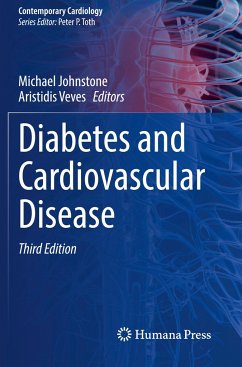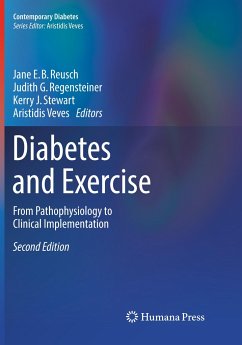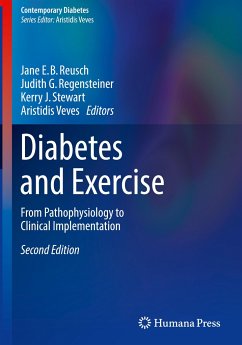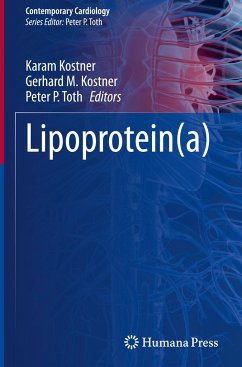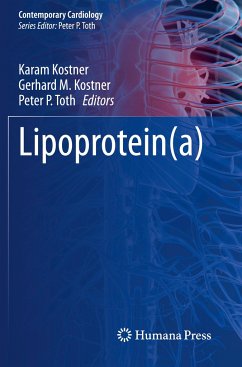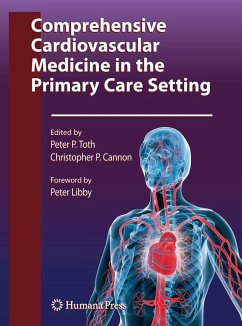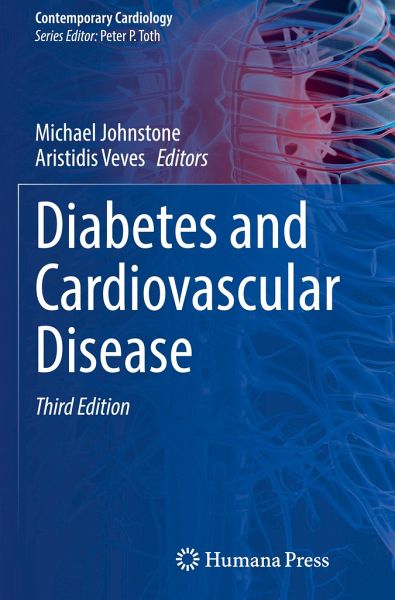
Diabetes and Cardiovascular Disease

PAYBACK Punkte
75 °P sammeln!
This third edition of the book offers an up-to-date review of Diabetes Mellitus with a focus on both Micro- and Macrovascular Disease. The text includes a review of the basic concepts of : Diabetes and Vascular Disease, including Endothelial Dysfunction; The Effect of Insulin on the Vascular System; The Mechanism of Atherosclerosis in Diabetes Mellitus and the Role of Inflammation on the Vascular Tree; and The Role of the Renin-Angiotensin-Aldosteronism on Diabetes Mellitus. Chapters will discuss the Genetics of Type 2 Diabetes Mellitus as well as the Metabolic Syndrome. Other chapters discuss...
This third edition of the book offers an up-to-date review of Diabetes Mellitus with a focus on both Micro- and Macrovascular Disease. The text includes a review of the basic concepts of : Diabetes and Vascular Disease, including Endothelial Dysfunction; The Effect of Insulin on the Vascular System; The Mechanism of Atherosclerosis in Diabetes Mellitus and the Role of Inflammation on the Vascular Tree; and The Role of the Renin-Angiotensin-Aldosteronism on Diabetes Mellitus. Chapters will discuss the Genetics of Type 2 Diabetes Mellitus as well as the Metabolic Syndrome. Other chapters discuss the Risk Factors of Diabetes and Vascular Disease, including Hypertension; Dyslipidemia; and Thrombosis. The book also reviews Microcirculation; Diabetic Nephropathy; Diabetic Retinopathy; as well as the Epidemiology, Diagnosis, and Treatment of Peripheral Vascular Disease; Diabetes and Coronary Artery Disease; Diabetes and Percutaneous Interventions; Diabetes and Cardiac Surgery; and Diabetes and Heart Failure. Chapters conclude with a review of the present-day Treatment of the Diabetic Patient.
Diabetes and Cardiovascular Disease, 3rd Edition, offers practicing physicians a cutting-edge scientific and clinical review of diabetic cardiovascular disease, providing both a deeper understanding of its pathology and all the day-to-day practical knowledge needed to treat patients effectively.
Diabetes and Cardiovascular Disease, 3rd Edition, offers practicing physicians a cutting-edge scientific and clinical review of diabetic cardiovascular disease, providing both a deeper understanding of its pathology and all the day-to-day practical knowledge needed to treat patients effectively.



